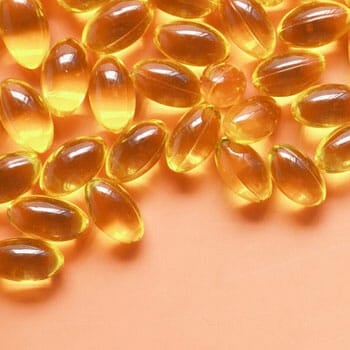CLA and fish oil are two of the most popular sources of healthy fats on the supplement market.
But is one really better than the other?
To see how they stack up, we reviewed medical journals and articles tackling their respective benefits, risks, and side effects.
Here’s what we discovered.
Quick Summary
- For optimal health benefits, fish oil is generally considered superior to CLA, offering a broad spectrum of well-researched physical and mental advantages.
- CLA may aid in weight loss by preventing fat cell growth, but its effectiveness and impact on muscle protein synthesis and glucose production require more research.
- A 1997 study demonstrated that CLA led to a 57-60% reduction in body fat and a 5-14% increase in lean mass in mice compared to a control group, yet its effects on humans remain unclear.
- Based on my experience and the research I've reviewed, I recommend fish oil as a cost-effective supplement with diverse health benefits, though individual goals should guide the final choice.
Is CLA And Fish Oil The Same Thing?

CLA and fish oil are not the same thing, they are both sources of essential fatty acids, but their benefits and uses vary depending on your health goals.
These long-chain, polyunsaturated fatty acids are both beneficial, but the question of which one you should use will ultimately depend on your specific health needs.
CLA is an excellent choice if you intend to lose weight. According to a 2007 study published in the Food Research International journal, CLA may prevent fat cells from growing larger and aid weight loss while preserving lean body mass [1].
Also, CLA has a bit higher price than fish oil.
If your purpose is to boost overall health, a fish oil supplement will make a fantastic addition to your diet. It offers a myriad of health benefits, and the good news is that these claims are supported by years’ worth of scientific data, like one published in the Nutrients journal [2].
Yet, it's crucial to understand that while CLA and fish oil both offer essential fatty acids, current evidence does not support a strong anti-obesity role for omega-3 polyunsaturated fatty acids in overweight individuals, necessitating further research [3].
Conjugated Linoleic Acid
Conjugated linoleic acid (CLA) is an omega-6 fatty acid commonly found in meat, vegetable oils, dairy products, and the milk of sheep, goats, and cows.
Omega-6 is one of the two types of essential fatty acids that play a role in increasing metabolism, keeping cholesterol levels in check, and boosting your immune system, among other benefits.
CLA is primarily known as a weight-loss supplement, but the study of its effectiveness is varied.
Research from the British Journal of Nutrition says that CLA has the ability to reduce body fat, improve muscle tone, enhance muscular performance, and build more lean muscle mass. However, other studies have found that it has no impact on body weight.
Benefits Of CLA

From my time coaching athletes, I've seen mixed results with CLA.
Some have reported feeling more energized during workouts, attributing it to CLA's role in fat oxidation. Others have noticed less muscle loss during cutting phases, which could be due to CLA's muscle-sparing properties.
Fat oxidation refers to the process by which your body breaks down fatty acids to use as energy.
CLA works to promote the use of fats when you burn calories instead of other nutrients when working out, which can help you lose weight in the long term.
"Studies in animals show CLA may decrease energy intake, increase energy expenditure, and inhibit the production of formation of fat cells, aiding in weight loss. Human studies have had mixed results.”
- Serena Poon, Nutritionist
Muscle-sparing, on the other hand, means that you will lose less muscle when you're dieting. CLA will ensure that you burn fat instead of muscle when you're restricting calories.
Here's the bottom line on CLA: it won't help you lose fat, but it might just improve your diet results with these two mechanisms.
Taking a CLA supplement also offers several potential health benefits, including:
- Lower risk of heart disease due to its anti-inflammatory properties
- Reduce the risk of certain types of cancer
- Reduced diabetes risk
- Improved body composition
However, the scientific research on these claims is extremely limited.
According to a 1997 study in the Lipids journal, controlled mouse experiments showed that CLA achieved up to 60% greater weight loss compared to the control group [4]. Although this is promising evidence, it's unknown whether it will have the same effects on humans.
Downsides Of CLA

The main drawback of CLA is the lack of research on its effectiveness.
It has a lot of hype, and exaggerated marketing tactics by various brands have overtaken the real science behind the product.
Although CLA is touted for its weight-loss potential, studies suggest that its impact on muscle protein synthesis and glucose production is not significant, which is essential to consider when evaluating its effectiveness as part of a fitness regimen [5].
When taken in high doses for prolonged periods, CLA might:
- Increase inflammation
- Cause fatty liver
- Result in insulin resistance
Considering these potential side effects, it's better to just get CLA from natural sources in your diet. You also get to save some money because CLA supplements can be pretty expensive.
Fish Oil

Fish oil supplements, sourced from fatty fish like cod, salmon, and mackerel, are rich in omega-3 fatty acids. My clients who've upped their intake of these fish have seen notable health gains.
Cod liver oil remains the best source of EPA and DHA from fish oil, and it also contains vitamins A and D. As most people don’t get enough omega-3s from food sources, supplementation becomes necessary.
Benefits Of Fish Oil Supplements
Omega-3s in fish oil can lower blood fats, balance cholesterol, and reduce blood pressure, with Harvard Health Publishing noting their importance in mental health and mood disorders [6]. Fish oil's benefits, as shown in various studies, include:
- Fighting inflammation, which may lower risks of cancer, joint pain, and heart disease.
- Boosting mood, helping with depression and stress.
- Easing rheumatoid arthritis pain due to its anti-inflammatory properties.
- Regulating the immune system, potentially reducing autoimmune diseases.
- Supporting heart health by lowering blood pressure and triglycerides.
- Aiding weight loss by curbing appetite and increasing metabolism.
- Enhancing brain health by reducing inflammation and protecting neurons.
While fish oil offers many health perks, it alone might not significantly alter BMI. It's best used as part of a wider health and fitness plan. With its array of benefits, fish oil remains a top supplement choice globally.
Downsides Of Fish Oil Supplements

Fish oil supplements are considered likely safe by the FDA, as long as you take them in doses of 3 g or less per day.
Taking anything above that poses serious consequences, such as:
- Depression
- Diabetes
- Bipolar disorder
- Fatty liver
FAQs
Can We Take Fish Oil and CLA Together?
You can take fish oil and CLA together. Emerging research suggests there might be synergistic effects when CLA and fish oil are taken together; they may play a pivotal role in mitochondrial biosynthesis and metabolism within skeletal muscle cells.
Is CLA Safe to Take?
CLA is safe to take in doses of up to 6 g per day. However, keep in mind that the risk of adverse effects rises with the increased dose.
Does CLA Interfere With Any Medications?
CLA can interfere with certain medications, specifically antihypertensive drugs and anticoagulant/antiplatelet drugs. If you’re taking any of these medicines, it’s best to consult your health provider to confirm if they’re safe to combine with a CLA supplement.
References:
- https://www.sciencedirect.com/science/article/abs/pii/S0963996906001980
- https://www.ncbi.nlm.nih.gov/pmc/articles/PMC6357022/
- https://journals.plos.org/plosone/article?id=10.1371/journal.pone.0142652
- https://pubmed.ncbi.nlm.nih.gov/9270977/
- https://www.ncbi.nlm.nih.gov/pmc/articles/PMC4574006/
- https://www.health.harvard.edu/blog/omega-3-fatty-acids-and-the-heart-new-evidence-more-questions-2021032422213
About The Author
You May Also Like






